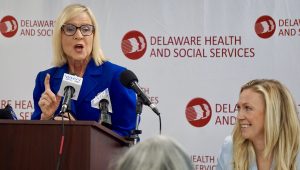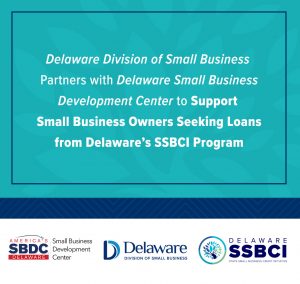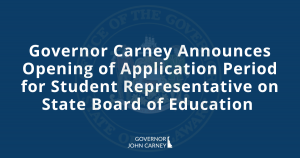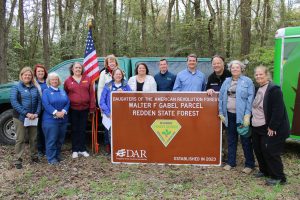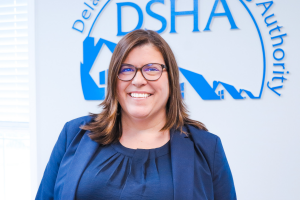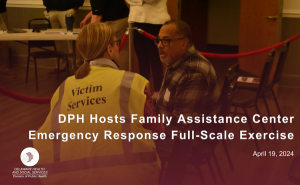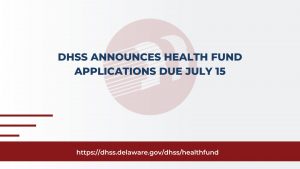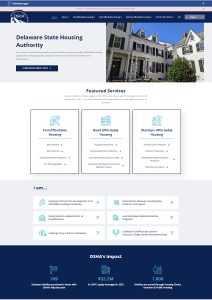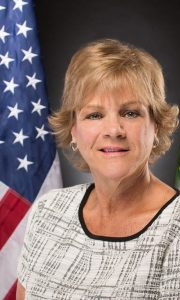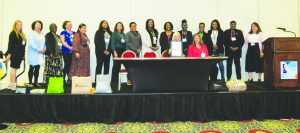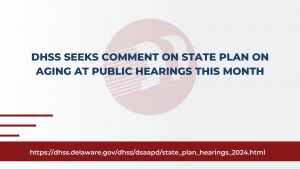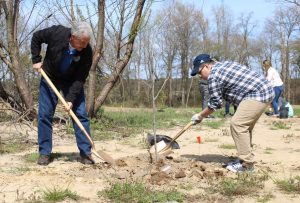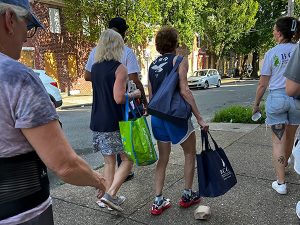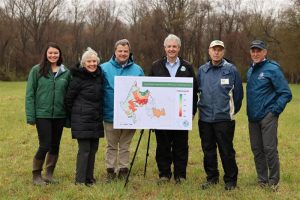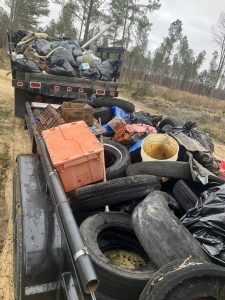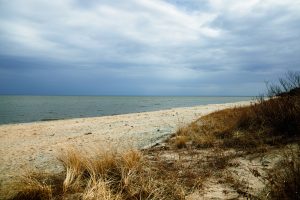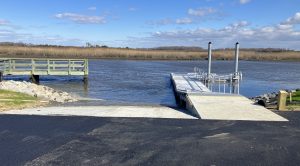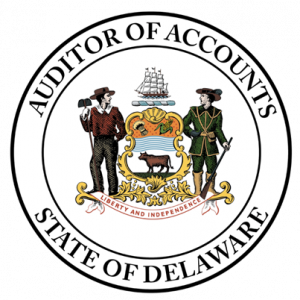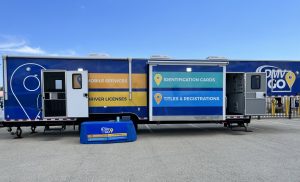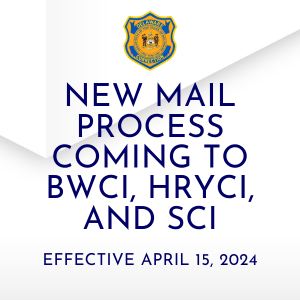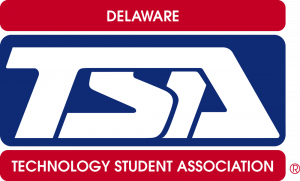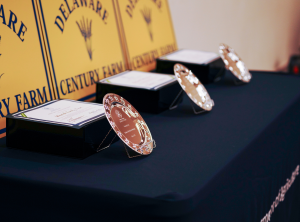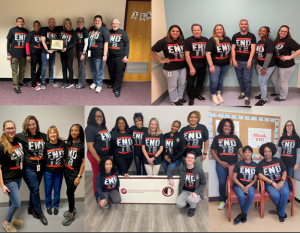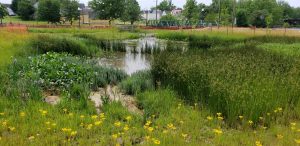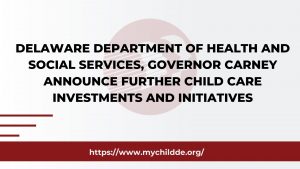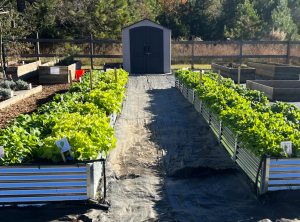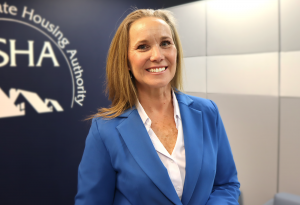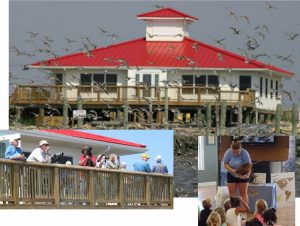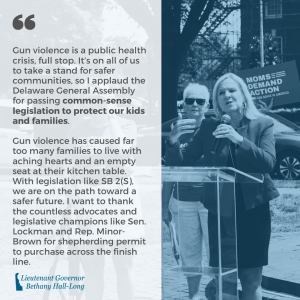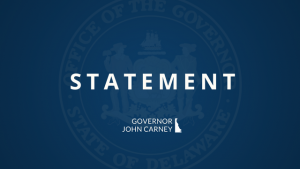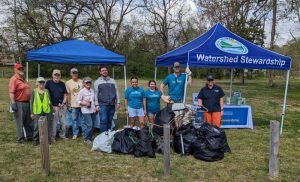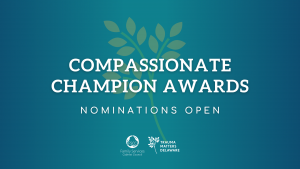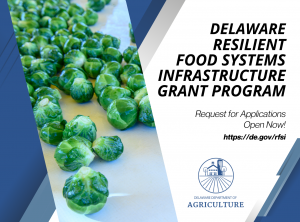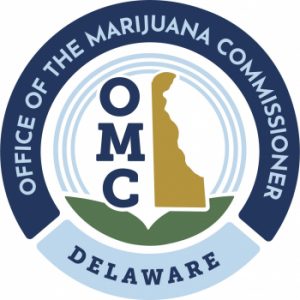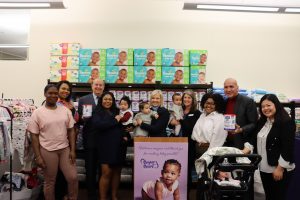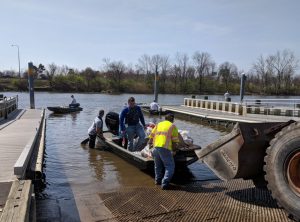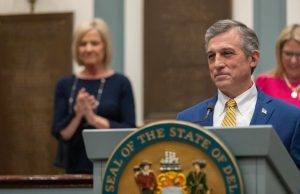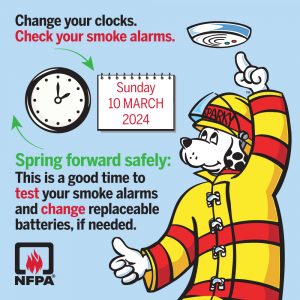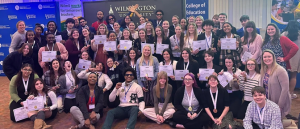REHOBOTH BEACH (May 20, 2013) – This morning in Rehoboth Beach, Governor Jack Markell, DNREC Secretary Collin O’Mara and Delaware Department of Agriculture Secretary Ed Kee joined Delmarva Wellnet Foundation-EDEN Delmarva members to celebrate the success of the foundation’s food recycling project REPLENISH. Also in attendance were representatives from the composters, waste haulers, farms and Sussex county restaurants participating in REPLENISH.
First implemented in the Rehoboth Beach area in 2011, REPLENISH collects food scraps from local restaurants. These organic materials, including fruits, vegetables, meats and seafood, eggs, cheese, coffee grounds and filters, assorted cooked foods, plate scraping and compostable utensils and paper products, are transformed into nutrient-rich compost by Blue Hen Organics. This compost is then made available to area farmers that sell produce to the same restaurants.
“This innovative project is a model for cooperation and partnership between state government, private businesses, agricultural producers and community-based non-profit organizations to produce measurable benefits for the people of Delaware,” said Governor Markell. “We applaud EDEN Delmarva’s efforts to make this program happen, and look forward to their continuing successes.”
“Recycling initiatives like REPLENISH save money for restaurants and farmers, while supporting local businesses and local jobs,” said Secretary O’Mara. “By putting a previously untapped resource – organic restaurant scraps – to a healthy, productive use, we can create new economic value from resources that too often are thrown away and avoid filling up our landfills.”
In 2012, REPLENISH collected 245 tons of organic materials from 30 restaurants in the Lewes-Rehoboth Beach, saving the restaurants an estimated $1,000 each annually on their trash bills. Blue Hen Organics composted these materials to make nearly 100 tons of nutrient-rich compost. By composting instead of landfilling, the program kept more than 500 tons of CO2 and nearly 25 tons of methane out of our air. To date, REPLENISH has diverted more than 500 tons of organic materials from landfills and helped produce 200 tons of compost.
“REPLENISH works to educate restaurant owners, managers and staff on the benefits of reducing their environmental footprint and improving their economic efficiency,” said Dr. Kim Furtado, one of the founders of Delmarva Wellnet and REPLENISH. “The community at large enjoys four key benefits: cost savings, reduction of greenhouse gas emissions, reduced need for chemical fertilizers resulting in less agricultural run-off to our waterways and watersheds, and increased market share for local famers creating fresher food for the community.”
“REPLENISH forms a direct link between our farms and our businesses, taking local produce grown on local lands to local restaurant kitchens to local diners’ plates and back again,” said Secretary Kee. “It’s a self-sustaining cycle in which everyone reaps the benefits, and it supports the agricultural community’s commitment to implementing best management practices and helping to reduce pollutants entering our waterways. I look forward to seeing this program expand to other parts of the state and spreading these benefits.”
At the celebration, REPLENISH Executive Director D.C. Kuhns announced plans to expand into northern Delaware, partnering with Peninsula Compost Company to work with more and larger food generators, truck farmers and poultry growers. “The goal for the next phase of the REPLENISH project is to continue to reduce the amount of waste sent to landfills and the resulting greenhouse gasses produced, and to improve and increase resource reclamation rates,” Kuhns said. “By including poultry litter in the resource recovery for compost, we can reduce nutrient run-off into our watersheds and also gradually improve water quality.”
Delaware Economic Development Office Director Alan Levin also applauded REPLENISH. “The REPLENISH program is a great example of a win-win proposition for businesses, the economy, and the planet,” Levin said. “Our beach resorts already boast some of the finest dining on the East Coast, and this expansion will only increase access to the fresh local produce that is so key to their reputation.”
REPLENISH received grant funding from the DNREC-administered Regional Greenhouse Gas Reduction Initiative, regional energy producer/supplier Constellation/Exelon, the Longwood Foundation and the Welfare Foundation.
Key partners include Blue Hen Disposal, Blue Hen Organics, Peninsula Compost Group, Waste Management and the Rehoboth Beach- Dewey Beach Chamber of Commerce, as well as local restaurants and farmers.
About Delmarva Wellnet Foundation
Incorporated as a community non-profit organization in 2003, the Delmarva Wellnet Foundation launched its Energize Delaware Now (EDEN) Delmarva project in 2010 to serve the Delmarva Peninsula by creating business opportunities for the reclamation and recovery of renewable resources, with a focus on agriculture. EDEN’s projects and programs include REPLENISH, which began operations in 2011. For more about Delmarva Wellnet or its projects including REPLENISH, please visit www.edendelmarva.org.
About Blue Hen Organics
Blue Hen Organics began operations in 2010 with the goal of diverting organic waste from landfills to produce nutrient-rich compost to be used as a natural, organic soil additive in place of synthetic fertilizers. Its 46-acre facility near Dagsboro accepts biodegradable materials including yard waste, land clearing debris, poultry manure, food waste, and hatchery waste to turn into compost, topsoil, and specialty compost-based soil blends. Blue Hen Organics compost is sold to farmers, landscapers, and is available at 23 retail locations across the Delmarva Peninsula.
About the Regional Greenhouse Gas Initiative
RGGI is the first market-based, mandatory cap-and-trade program in the U.S. created to reduce greenhouse gas emissions, with 10 Mid-Atlantic and Northeast states participating – Connecticut, Delaware, Maine, Maryland, Massachusetts, New Jersey, New Hampshire, New York, Rhode Island and Vermont. Through RGGI, CO2 emissions in the power sector are capped at 188 million short tons per year through 2014. This cap will be reduced by 2.5 percent each year for four years from 2015 through 2018, with a total reduction of 10 percent. A CO2 allowance represents a limited authorization to emit one short ton of CO2, as issued by a respective participating state. A regulated power plant must hold CO2 allowances equal to its emissions to demonstrate compliance at the end of each three-year control period. Power companies pay for these allowances and the resulting funds are used in the form of programs and grants to support projects that reduce greenhouse gas emissions. For more information, visit www.rggi.org
Contact: Joanna Wilson, DNREC Public Affairs, 302-739-9902
Vol. 43, No. 208
-30-




